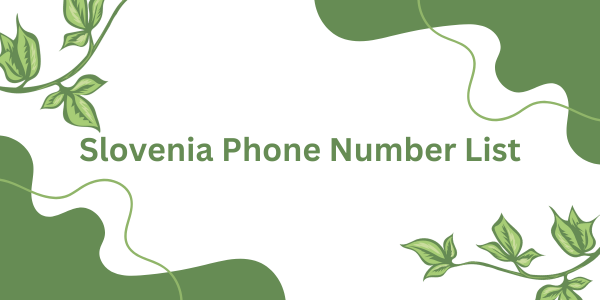|
|
Honey and beekeeping hold significant cultural, economic, and historical importance in Slovenia, reflecting the country’s deep connection to nature and sustainable agricultural practices. Slovenia is one of the world's most bee-friendly nations, with a rich tradition of beekeeping that dates back centuries.
Beekeeping in Slovenia is celebrated for its sustainability, biodiversity, and Slovenia Phone Number List contributions to environmental conservation. The country is home to a high number of beekeepers and is known for the Carniolan honeybee (Apis mellifera carnica), a species native to the region. This honeybee is cherished for its productivity, resilience, and adaptability, making it a vital part of Slovenian beekeeping traditions.
Slovenia is a world leader in honey production, and honey is a staple in its agricultural exports. The country produces a variety of high-quality honey types, including acacia honey, chestnut honey, lime tree honey, and wildflower honey, each with unique flavors. Slovenian honey has gained international recognition for its purity and quality, and the industry supports both local livelihoods and global markets.
Beekeeping has deep cultural and traditional roots in Slovenia. Many Slovenian households have engaged in this practice, and it is commonly passed down through generations. In fact, Slovenia is celebrated for its strong emphasis on educational programs for aspiring beekeepers, promoting the craft as a way of life and a vital component of environmental sustainability.
The Slovenian government and its institutions have prioritized the protection of bees and beekeeping practices. This includes policies to preserve biodiversity and support ecological farming. Slovenia also became the first country in the world to declare "World Bee Day" (May 20) in honor of bees’ critical role in pollination and food security. The celebration of this day emphasizes the importance of raising global awareness about the challenges facing bees.

Honey has cultural importance as well, often used in traditional Slovenian cuisine and folk medicine for its health benefits. It is valued for its natural antibacterial properties, versatility, and nutritional qualities. Beekeeping and honey production also connect Slovenian rural communities, as these industries support small-scale farmers and local economies.
In conclusion, honey and beekeeping are vital to Slovenia for their ecological, economic, and cultural contributions. They symbolize sustainable agricultural practices, environmental stewardship, and an enduring connection to Slovenia’s natural heritage.
|
|